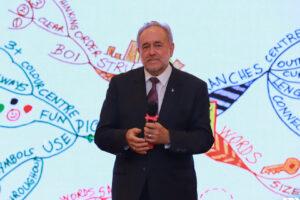
Multi-tasking or mono-tasking? by Professor Marek Kasperski
- Posted by Marek Kasperski
- Categories Articles from Professor Marek Kasperski
- Date August 7, 2023
- Comments 0 comment
The term multitasking originated in the 1960s, describing a computer’s ability to work on multiple programs simultaneously. We have since adopted this term to explain a person’s ability to perform tasks simultaneously. This is generally seen as admirable, and people often boast about it.
 Professor Roscoe Giles from Boston University explains that computers cannot perform multiple tasks simultaneously. Instead, they switch between tasks, albeit very quickly. They seem to multitask, but they actually don’t.
Professor Roscoe Giles from Boston University explains that computers cannot perform multiple tasks simultaneously. Instead, they switch between tasks, albeit very quickly. They seem to multitask, but they actually don’t.
The same applies to humans. We can switch between tasks, appearing to be multitasking; however, it has been found that we do this very badly.
Earl Miller, an MIT neuroscientist, said, “the result is you have decreased productivity, increased mistakes, and a decreased quality of thought. People who think they’re better at multitasking are actually worse at it. Their brain rationalises it, he said. They delude themselves into thinking they are good at doing something that they’re not because they’re making an excuse for why they do it. And if there is one thing we’ve learned, the brain is very good at deluding itself.”
This tells us that planning to focus on a task is imperative. Miller uses the word “monotasking” to describe focusing on a single task.
This research strongly reinforces the principles of Mind Mapping law number two, keywords. Keywords help us focus on one important task at a time, resulting in an explosion of association and creativity.
Tag:Training
You may also like

Creativity and Age by Professor Marek Kasperski

